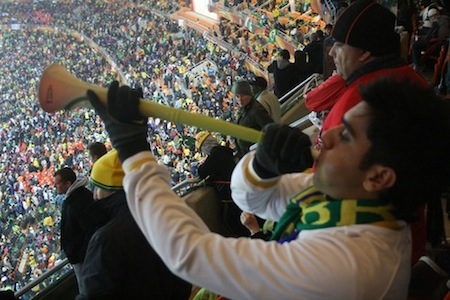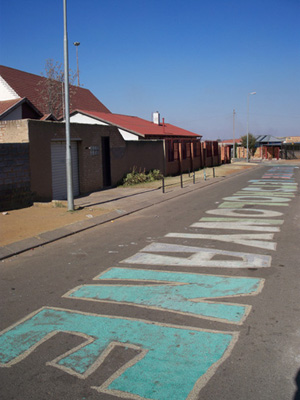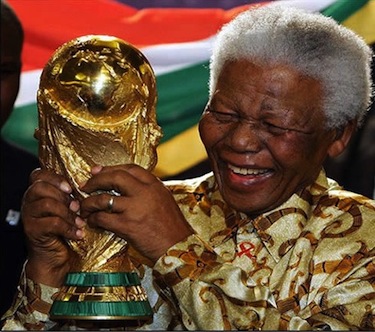“Justice for Oscar Grant!” As I sit in front of these keys I know that I could have written this essay 100 times before and will likely need to write it 100 more times before I die, simply because I … Continue reading “Justice for Oscar Grant”
Online Features
New from a Social Text Author: The Citizen Machine
Social Text CollectiveThe Citizen Machine: Governing by Television in 1950s America
by Anna McCarthy
Formed in the shadow of the early Cold War, amid the first stirrings of the civil rights movement, the idea of television as a form of unofficial government inspired corporate executives, foundation officers, and other members of the governing classes to imagine TV sponsorship as a powerful new form of influence on American democracy in the postwar years. The Citizen Machine tells the story of their efforts to shape U.S. political culture, uncovering a dense web of fantasies and rationalizations about race, class, and economic power that have profoundly shaped not only television, but our understanding of American citizenship itself.
Performing the Future
Social Text CollectiveSocial Text collective member José Muñoz will be among the presenters at this state of the field conference on performance, to be held July 8th – 10th, 2010, at the House of World Cultures in Berlin. Click here for the full conference program.
World Cup Soccer: Enjoyment and Identification
Eli Jelly-SchapiroFootball fans can be divided, somewhat crudely, into two categories: those attracted to the game for aesthetic gratification; and those whose fandom is rather driven by feelings of group solidarity. These categories are not mutually exclusive. A beautiful move acquires even greater beauty when performed by a player or team with whom one identifies; feelings of solidarity are emboldened when joined to rare artistry.
On the Subject of Citizenship
Micki McGeeJust in time for the Independence Day weekend, the Library of Congress has released new research on the Declaration of Independence. Apparently when Thomas Jefferson was drafting the document he initially used the word “subjects,” then blotted it out and replaced it with the word “citizens.” Library of Congress preservation researcher Dr. Fenella France has used spectral photographic imagery to uncover the original markings. In the popular press, Jefferson’s writing is described as a “Freudian slip” …
New dossier on Cruising Utopia
Social Text CollectiveAs we exit a more contentious than usual month of Gay Pride, Social Text brings you this dossier of critical appreciations of long-standing collective member José Esteban Muñoz’s new book, Cruising Utopia: The Then and There of Queer Futurity. Read responses from Lauren Berlant, Barbara Browning, Gayatri Gopinath, and Ricardo Ortiz. Muñoz responds to his responses, and performance art legend Vaginal Davis contributes an original illustration inspired by Cruising Utopia.
Desiring Just Economies / Just Economies of Desire
Social Text CollectiveSocial Text collective member Lisa Duggan is among the speakers at this conference to be held 24-26 June, 2010 at the Institute for Cultural Inquiry in Berlin. Desiring Just Economies / Just Economies of Desire, according to it’s organizers, will “explore how desire not only sustains current economies, but also carries the potential for inciting new forms of understanding and doing economy.” Read the full conference statement and get more details here.
Bafana Bafana: The Reckoning
Eli Jelly-SchapiroWhen Siphiwe Tshabalala scored for Bafana Bafana against Mexico on June 11, he provided the World Cup the sublime opening note longed for by his country, and by followers of football across the planet. Mexico’s late equalizer dampened the local … Continue reading “Bafana Bafana: The Reckoning”
World Cup Security Workers Protest
Eli Jelly-SchapiroIn November of 2007 the workers building Durban’s Moses Mabhida Stadium staged a wildcat strike, demanding monthly project bonuses and better Health and Safety standards. Their action helped inspire a wave of such work stoppages at stadium sites throughout the country, and contributed to one of the abiding narrative themes of the World Cup’s lead-up: would the infrastructure be ready in time?
The World Cup III: In The Stadium's Shadow
Eli Jelly-SchapiroFifteen years after the new South Africa’s first democratic elections, the dream of a true, non-racial, economically just “Rainbow Nation” endures. But so too do the inequalities of race and class that are the legacy of apartheid and its colonialist antecedents. In April of 2009 Jacob Zuma, anointed restorer of the liberationist mantle, rode a wave of populist energy to the national presidency. His ascension, however, has not quelled a resurgence of social unrest. For the majority of South Africans who retain faith in the nation’s potential, but mourn the violent inequities that continue to shape daily life in apartheid’s aftermath, the World Cup is cause for a difficult if needed national reckoning. [Part 3 of a 3 Part series.]
The World Cup II: Bafana Bafana
Eli Jelly-SchapiroSoccer’s history in South Africa, and perhaps on the continent at large, began in 1862, when British sailors, soldiers, and bureaucrats organized a match in Cape Town. Consistent with its British public school origins, soccer in South Africa was initially a game of the colonizing classes. Like cricket and rugby, the sport was used to nurture an imperialist ethos of mannered masculinity amongst British youth, imperial servants, and privileged colonial subjects. [Part 2 of a 3 part series.]
Remembering Lena Horne
Shane VogelIn May of 1963, US Attorney General Robert F. Kennedy convened a meeting of black representatives from the realms of politics, academia, and the arts. The remarkable gathering included James Baldwin, Lena Horne, Lorraine Hansberry, Harry Belafonte, social psychologist Kenneth Clark, president of the Chicago Urban League Edwin Berry, and Jerome Smith, a young activist and CORE fieldworker. Kennedy offered defensive platitudes of his record on civil rights; Clark, Hansberry, and others tried to impress upon him the inadequacy of the federal response to the situation in the south. Both sides spoke past each other until the meeting was brought to a halt by the soft-spoken yet passionate interruption of Jerome Smith.
Open Letter to President Obama
Ashley DawsonDear President Obama, This holiday weekend brought news of the failure of BP’s latest strategy for plugging the oil flow in the Gulf of Mexico – the ominously named “top kill.” It now seems increasingly likely that oil will continue … Continue reading “Open Letter to President Obama”
The World Cup: Will South Africa Shine?
Eli Jelly-SchapiroFrom the editors: In the lead-up to the World Cup, the first to be held in Africa, we are serializing in three parts an essay by Eli Jelly-Schapiro on the cultural politics of soccer. This essay will then be followed by a Periscope forum about the Cup. Read more.
Philosophy Department closure at Middlesex University, UK
Tariq JazeelDepressing things going on at Middlesex University in the UK following management’s crazy decision to close the Philosophy Department. After student occupations in protest, a number of students and faculty have been suspended from the University. Faculty suspended are Professor Peter Osbourne, Professor … Continue reading “Philosophy Department closure at Middlesex University, UK”






